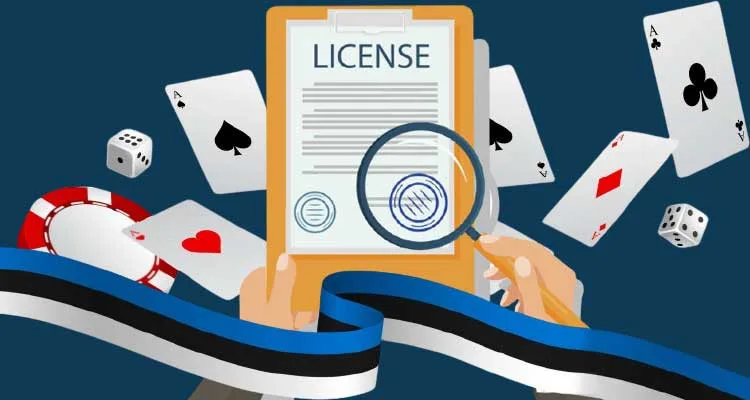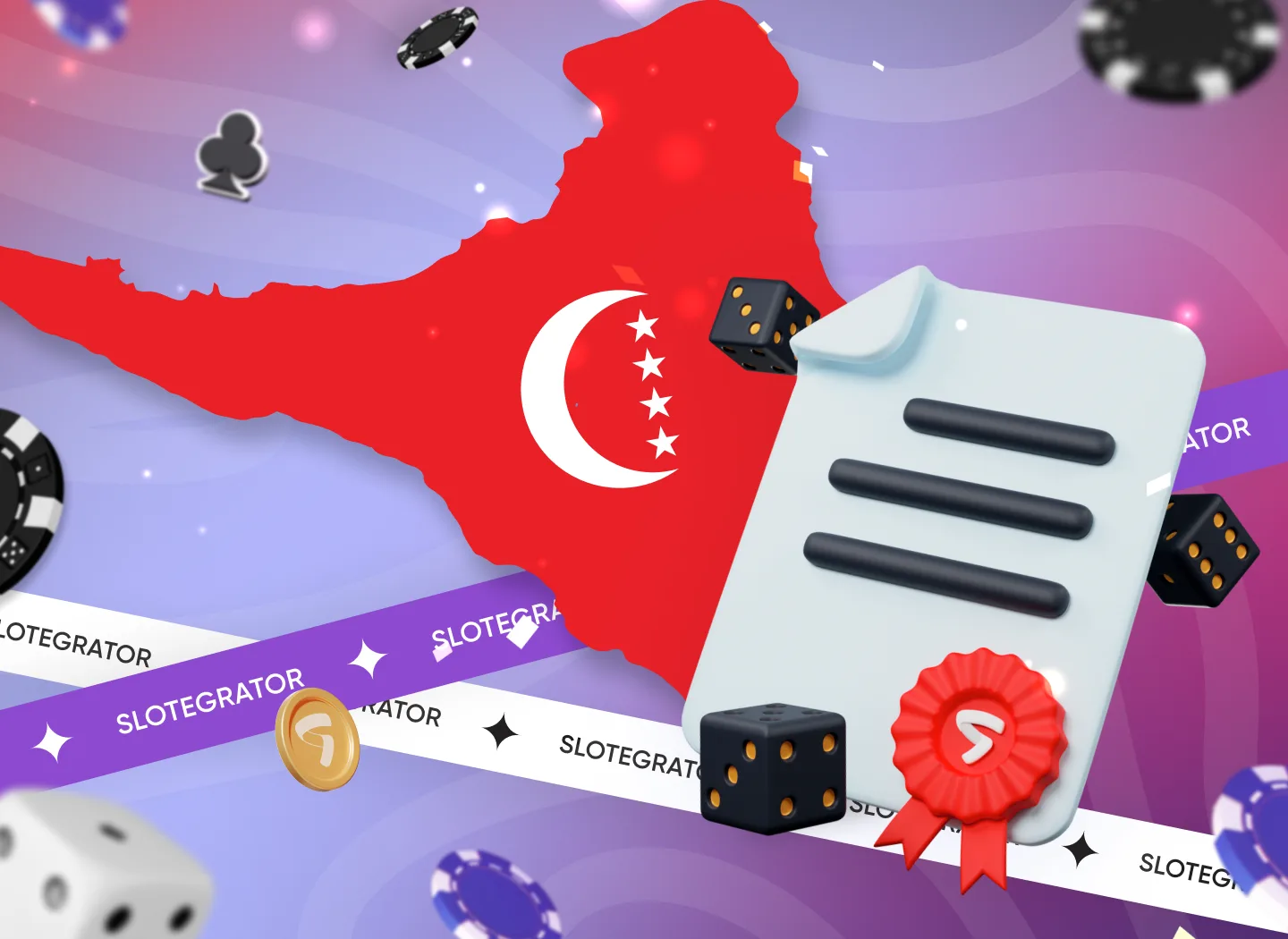Even though Estonia is a small country in the Baltic region and a member of the European Union, it has a unique approach towards gambling permissions. The local authorities developed a flexible licensing system that provides full control over the country’s gambling operators. Despite the fact that the Estonian Gambling License isn’t valid across the EU, this country presents a quite attractive region to start a gambling business. GBC Time offers a comprehensive guide towards Estonian gaming certification.
Traditions of Gambling in Estonia
Being a small post-Soviet country, Estonia has its own gambling traditions. They take roots almost from gaining independence in the early 1990s. Thus, the gambling sector’s first official documentation was the Lotteries Act, which was established in 1994. The next year, the Gambling Act was declared, which widened the understanding and regulation of gaming activity across the country.
However, global technological development and progress forced the country to rethink the approach towards gambling regulation in the 2000s. Interestingly, but the world crisis became the cornerstone aspect of the renewed rules in the casino and betting sphere. The Estonian government saw in the gambling industry a source of additional income to the national budget.
At the same time, the new 2008 Gambling Act brought a regulation into the online sphere. Since that time, the Estonian Tax and Customs Board (ETCB) received its first statute, which, however, was published and came into force in 2009. ETCB is the country’s main regulatory body concerning finances and taxation, which initiated changes to the statute 18 times since the first document was presented.
Although Estonia has been a member of the European Union since 2004 and has adopted Euro currency in 2011, the country has decided not to rely on other EU states’ gambling licenses. It even led to some conflict of interest between the EU Parliament and the Estonian government, but the latter was able to defend their economic interests. At the same time, the Estonian gambling license isn’t also valid in the EU countries, while having quite similar general gambling rules that most European states share. Although the Estonian gambling license seems to be a local document, it is a good way to learn European gambling rules and consider starting a business in the country with quite friendly tax rates. Thus, making the conclusions concerning this permission should be postponed until the end of this review at least, when all the pitfalls would be reviewed.
Estonian Gambling License: the situation in 2024
Activity and purposes of Estonian Tax and Custom Board
To understand Estonian gambling licensing approaches, Logic Casino starts with a review of the activity of the Estonian Tax and Customs Board. This governmental organization is divided into three major structural directions and eleven departments. Not to confuse the reader with the flow of information, let’s just review the following table:
| Structural direction | Departments |
| Director General (Primary Direction) | Intelligence DepartmentLegal Department Communication DepartmentPersonnel DepartmentAdministration DepartmentInternal Control Department |
| Deputy Director General (Public Services) | Service DepartmentTax Department |
| Deputy Director General (Supervision) | Customs DepartmentTax Audit DepartmentInvestigation Department |
According to the official ETCB website, the body aims to make the country the best voluntary paying tax location in the world. In order to achieve this task, the organization shares the following vision priorities, including its gambling sector:
- Willingness to pay taxes. ETCB declares the goal to increase the citizens’ desire to pay taxes and develop transparent cooperation between people and organizations.
- Simple and convenient public services. ETCB is focused on providing comfortable and clear paying methods that should facilitate customers’ ability and desire to pay taxes correctly.
- Equal tax competition and the protection of society. ETCB promises to pay special attention to the problematic taxpaying cases to bring the understanding that paying taxes is cheaper and safer than ignoring or avoiding it.
- Pioneering organization and developing people. ETCB is focused on tight collaboration with people and the professional development of the overall awareness.
All these principles have to show that the Estonian rulers are focused on their citizens’ protection and ability to provide clear gaming rules, where transparency is among the core issues.
That is why Estonia developed its own certification system, as it allows dictating the governmental vision even in online gaming and ensuring the prevention of gambling addiction. Moreover, the taxation scheme that is reviewed below shows that the Estonian regulator developed a flexible and attractive system for both business people and citizens.
Estonian organization of remote gambling
When it comes to receiving the gambling certification in Estonia, one should visit the organization of remote gambling. That is the department of the Estonian Tax and Customs Board that is responsible for all the gaming licensing in the country. This subsidiary shares all the goals of the ETCB and transforms them into the concrete rules and requirements towards applicants for the Estonian gambling license.
As the application process is long and requires compliance with numerous rules, we’ve divided it into first-step and second-step requisitions. Thus, the primary part relates to general information about the applicant, while the next step is preparing the data about the software and hardware along with financial data.
The essential information related to receiving an Estonian gambling license and should be included in the application is presented in the table below:
| First-step requirements towards receiving Estonia gambling license | Second-step requirements towards receiving Estonian gambling permission |
| applicant’s name and registry code | description of the gaming equipment that will be used for gambling purposes |
| applicant’s seat and contact details | games’ rules |
| defined type and subtype of the needed gambling permission | description of the applying security measures |
| full data about the location (including address) of the server, which will be processing all the information of the gambling facility | an overview of the personal data protection measures and how they comply with the Personal Data Protection Act |
| detailed information (name, position, contact data) about the contact person and IT support individual | transparent data about the software and hardware (manufacturer of the gambling soft, server information, verification methods, compliance with age restriction practices) |
| applicant’s name, both real and digital signature, and position | contact data of the remote gambling facility (website address, contact phone number, support emails) |
| state the needed term of the certificate | actual financial information (bank accounts used for payments) |
| info about the state fee payment, which should be accomplished before the application’s submission | fіull information about the compliance with Anti-Money Laundering practices and how the process of cooperation will be held with the ETCB if the server is not in Estonia |
One has to understand that those requirements are included for the receiving of remote gambling licenses. According to the Estonian gambling acts, remote playing doesn’t refer to the cases when electronic devices are used for money processing, game registration, or informational purposes. Remote gambling refers to instances when electronic gadgets are used for game processing and determining the winner of a particular game.
However, the other types of gambling licenses are also under the control of ETCB, like the local land-based operators. As the Estonian Tax and Customs Board is the primary body that presents an attractive taxation system and assures a high level of control over the licensed bodies, its remote gambling permission is relatively attractive to foreign gambling operators. At the same time, if the potential business owner wants to receive a gaming certification for operating across the EU, he or she usually needs the permission for remote gambling only, which makes the regarded department of the ETCB a contact body for investors.
Types of gambling licenses
There are four major types of gambling activities in Estonia, but the local regulator suggests only three types when it comes to licensing. Some of the gaming types are divided into subcategories. Moreover, both land-based and online gambling facilities are under the control of the Estonian Tax and Customs Board and its appropriate departments. To make the perception of the information clearer, we present types and subtypes of gambling activity in the following table:
| Gaming type | Gaming subtype |
| Gaming | Casino gaming, which includes casino table games and slots |
| Poker | |
| Bingo | |
| Betting | Betting |
| Real sports betting (including horse races) | |
| Fantasy betting (including long-lasting sports events and shares) | |
| Lotteries | All types of lotteries |
| Skill arrangements | Skill games and competitions with no element of chance |
Available license types will be mentioned below in the section about fees and taxes as it gives a clearer understanding of how much to pay and for what. It’s also important to mention that real sports betting is regulated separately from other betting forms. Also, there is one more subtype of arrangements, which is called social arrangements. That is a form of organizing social playing with no money prizes. However, as it is not under the Estonian Tax and Customs Board’s control, it is not included in the table.
The application process is the same for all types and subtypes of licenses except for the legal age gambling limits that will be checked during registration. Thus, Estonia has the following age restrictions towards different types of gambling:
- Lottery playing is acceptable for 16+ individuals.
- Toto is permissible for persons under 18 years.
- All other types of gambling (including remote online gambling, the game of chance, and skill arrangements) are allowed for 21 years old.
Advertising rules for gambling license owners
As Estonia is a member of the European Union, it has developed similar restrictions in terms of advertising. Thus, the country insists on limited advertising campaigns and the vast promotion of gambling.
Advertising is generally limited:
- Outdoors, in the front and back covers of magazines and newspapers, until it is published with the gambling sponsor’s announcements.
- Inside and near the educational institutions, especially of school and preschool venues, on the events and in the entertainment establishments that are focused on children as the key audience.
- On the television and radio stations (that is the limitation for tots only).
Advertising permissions for games of chance:
- International-related venues (like airports) and transportation (like airplanes and ships).
- In the venues that organize and provide this gambling type, including hotels.
- On the websites of the game providers.
- If the person has permitted to send him/her advertising and promo campaigns via email, SMSs, and social media platforms (the individual should have the possibility to terminate the subscription).
Overall, the gambling industry’s advertising trends are moving in the direction of reduction, and Estonia just presents reality. Interestingly, the online gambling license validity is up to five years, while the ones for land-based venues have no permission limit. However, changes in the advertising rules or anti-money laundering requirements can bring certification-holders’ adjustments right after the innovation is accepted, independently of the license type and validity term. That is the outcome of the ability to terminate the permission if the license-owner violates laws or requirements presented by the ETCB.
Cost of Estonian Gambling License
How much does Estonian gambling license cost?
As there are three types of licenses that can be given by the Estonian Tax and Customs Board, the final application payment depends on the chosen kind of permission. According to the governmental data, one has to pay:
- €47,940 for the games of chance organizing;
- €31,960 for the pari-mutuel betting organization;
- €3,200 for the games of skill organizing;
- €3,200 for the reviewing of operating permission, excluding lotteries;
- €640 for reviewing the lotteries permissions.
However, before the application can be sent for reviewing, one has to present guarantees of having appropriate insurance capital. That is a usual practice all over the world and the amount of “safety money” depends on the number of clients and local gambling-spend limits. In Estonia, one has to possess the following share capital amounts:
- €1 million for organizing the game of chance;
- €130 thousand for managing pari-mutuel betting;
- €25 thousand for organizing games of skill.
Although Estonia has rather strict gambling rules, the country gives three exclusive cases for organizing the gambling activity that doesn’t require licenses and permissions:
- if the operator organizes the game of skill with no cash prize (gives the ability to participate in one more suchlike activity);
- if the lottery operator presents a prize pool lower than €1 thousand;
- if one organizes commercial lotteries.
The taxation system in the Estonian gambling sector
The taxation system consists of a fixed amount per gambling device and general taxes. As it can be divided into two small groups, Estonia’s taxation system can be considered a rather simple and transparent one. ETCB collects the following fixed fees depending on the gambling type:
- €1278 per one gaming table;
- €300 per gaming machine, with an additional 10% tax from all the bets made on the gaming machine (excluding winnings);
- €32 per one gambling machine that provides a game of skill.
What relates to taxes that depend on the spent and won amounts, the following list will help to make it clear:
- 18% tax for the total amount of sold tickets while organizing the lottery;
- 18% for the total amount of sold tickets during the commercial lottery that exceeds €10 000 prize pool;
- 5% of the total bets (excluding winning ones) made on the totalizer;
- 5% of the total amount of bets made during the online game of chance and game of skill.
Overall, Estonia’s taxation rates and obligatory fees look quite friendly for the potential investors, although the country is a closed location in terms of gambling permissions. The amounts of share capital are also not as massive as in Macau or Las Vegas casinos, which can be a perfect starting point for those who decided to enter the gambling business.
Why can Estonia be a gambling license destination for casino owners?
One of the primary questions of every business person and attendant for the gambling license relates to outgoings. Even though the country provides permits for local usage only while the country’s population is about 1.3 million citizens, this market can generate significant revenues.
For instance, in 2017, the state possessed 63 land-based casinos, with 860 people employed. However, the generated revenue rate was about €60 million because about 900 thousand citizens visited gambling venues. Those numbers exclude the income related to playing online casinos and betting firms.
Although the number of casinos doesn’t change significantly with only one new venue a year, the approximate calculations show that one casino can generate €1 million annually. If the potential investor simultaneously registers an online gambling venue with a massive pool of attractive slots and broad betting odds, this number can be multiplied several times.
Another valuable advice for the businessman that wants to start a gambling business in Estonia is choosing the right payment system. It means that the owner has to add all the actual payment methods, including instant ones via PayPal or cryptocurrencies. The latter is gaining momentum all over the world as it presents a new level of protection and privacy.
However, the business owner has to remember that blockchain betting and casino payments will be controlled concerning legal financial transactions soon. That is a part of anti-money laundering initiatives that are also in trend globally.
Read more: Best Gambling Payment Providers












